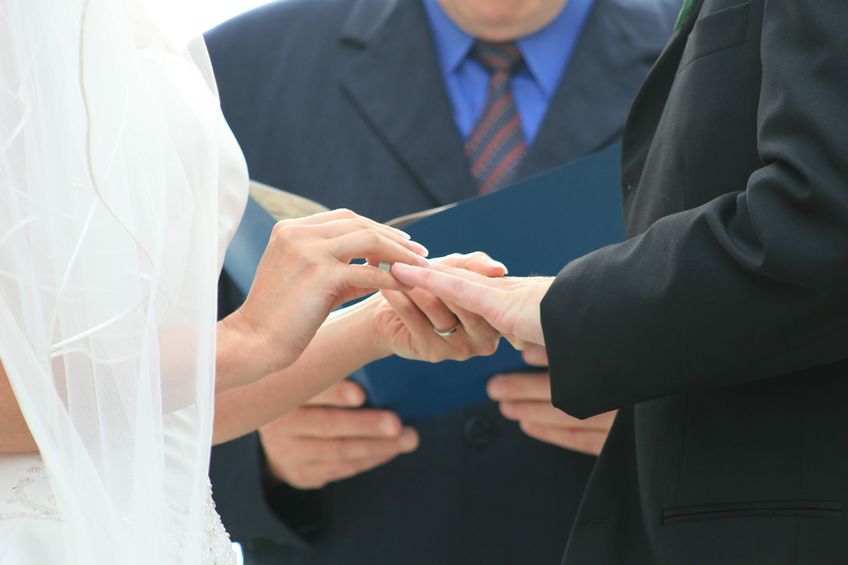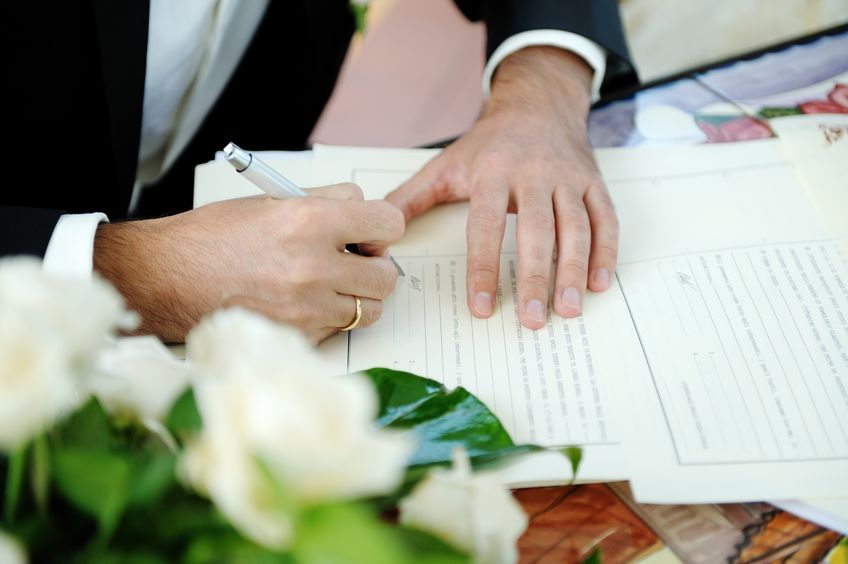
Have you ever attended an awkward wedding ceremony where the person performing the thing bumbled through, mispronounced names, or was generally just completely impersonal throughout? Avoid a ceremony like that with these five tips for choosing the right wedding officiant.
1– Think about ceremony type.
If you want your wedding ceremony to be personal and classically you, it’ll be important to make sure your vendors jive with that whole vibe, even the officiant. A good jumping off point for this decision is how religious or secular you want your proceedings to be. If you or your partner are religious people, you may want to work with a pastor, rabbi, priest, etc. to perform the wedding ceremony.
If you’re thinking of hosting a more secular ceremony, you’ll want to go a different route. Maybe you want some slightly religious nods, or a reading from a particular script. You’ll just need to make sure your officiant is certified so your wedding will be totally legal.
2– Meet with several officiants to get a feel for them.
You’ll want to make sure the wedding officiant you choose has a similar take on marriage as you do, and that he or she is a good fit for you as a couple, and for the ceremony you’re trying to create. Once you find some potential officiants who are available on your wedding day, set up some meetings or at least phone calls with them to talk this thing through. Do the person’s views on marriage align with yours? Do they have strict ideas about what a ceremony should be like or are they more flexible? Are they interested in details about you and your partner so they can make the ceremony personal? Be ready to ask lots of questions so you can assess how appropriate each person is for the role.
3– Treat the officiant like any other wedding vendor.
Ask for recommendations from friends, family, and your other wedding vendors. Read reviews online. Do your homework to figure out if this person is a good fit for your wedding. You may even want to ask if you can attend a wedding he or she is officiating to see how it goes. Just like you wouldn’t book a photographer without seeing their portfolio, don’t blind book an officiant and hope for the best.

4– Ensure your officiant is state recognized.
Before you decide on a wedding officiant, make sure the person you want to work with is officially recognized and certified in your state and county. You’ll also want to talk about what all your officiant is going to be responsible for outside of performing the ceremony, such as submitting the marriage license to your local clerk’s office for filing. It’s also a good idea to get everything in writing when it comes to the terms of your agreement, ie. in and out times, what all will be covered– wedding rehearsal, ceremony, etc.– how much you’ll pay, and when payment is due.
5– Spend time getting to know each other before the big day.
Once you’ve landed on the right wedding officiant for you, you may want to spend a little time together to get more familiar. This will give the officiant some insight into who you are, who your future spouse is, what your relationship is like, and some tidbits of information to help infuse the ceremony with personality. Getting to know each other will also help build some trust, so you feel totally comfortable and confident on the day of your wedding.

